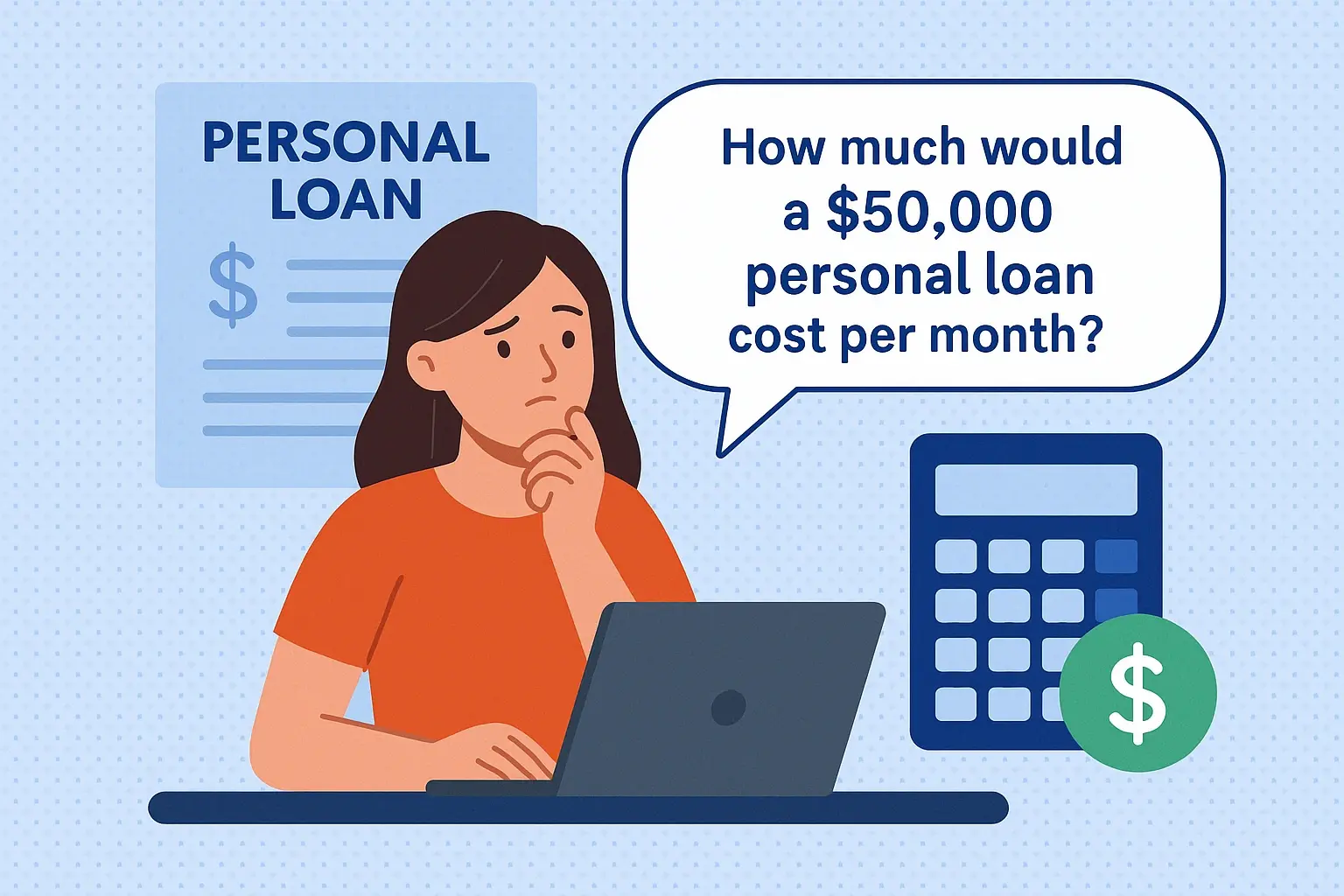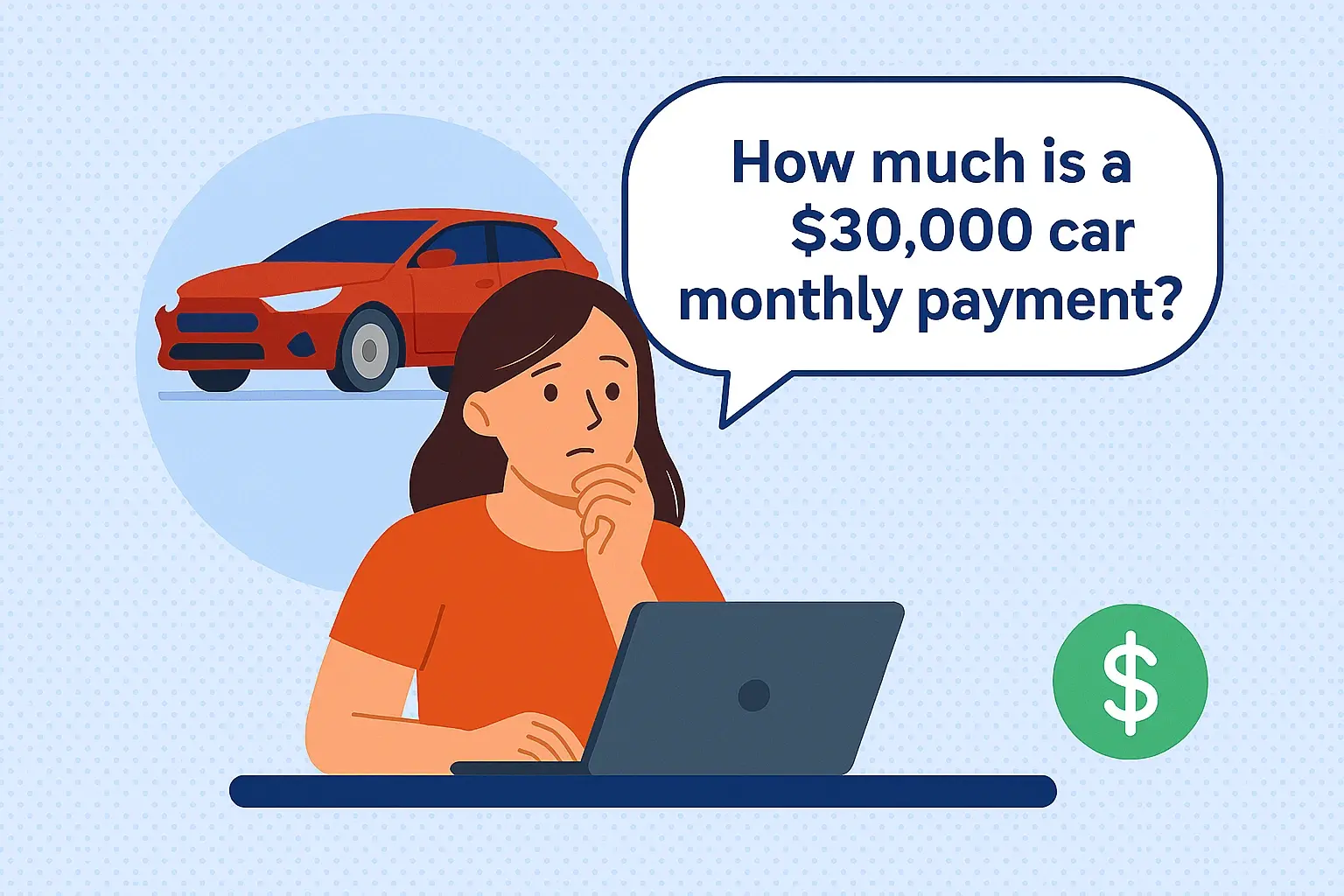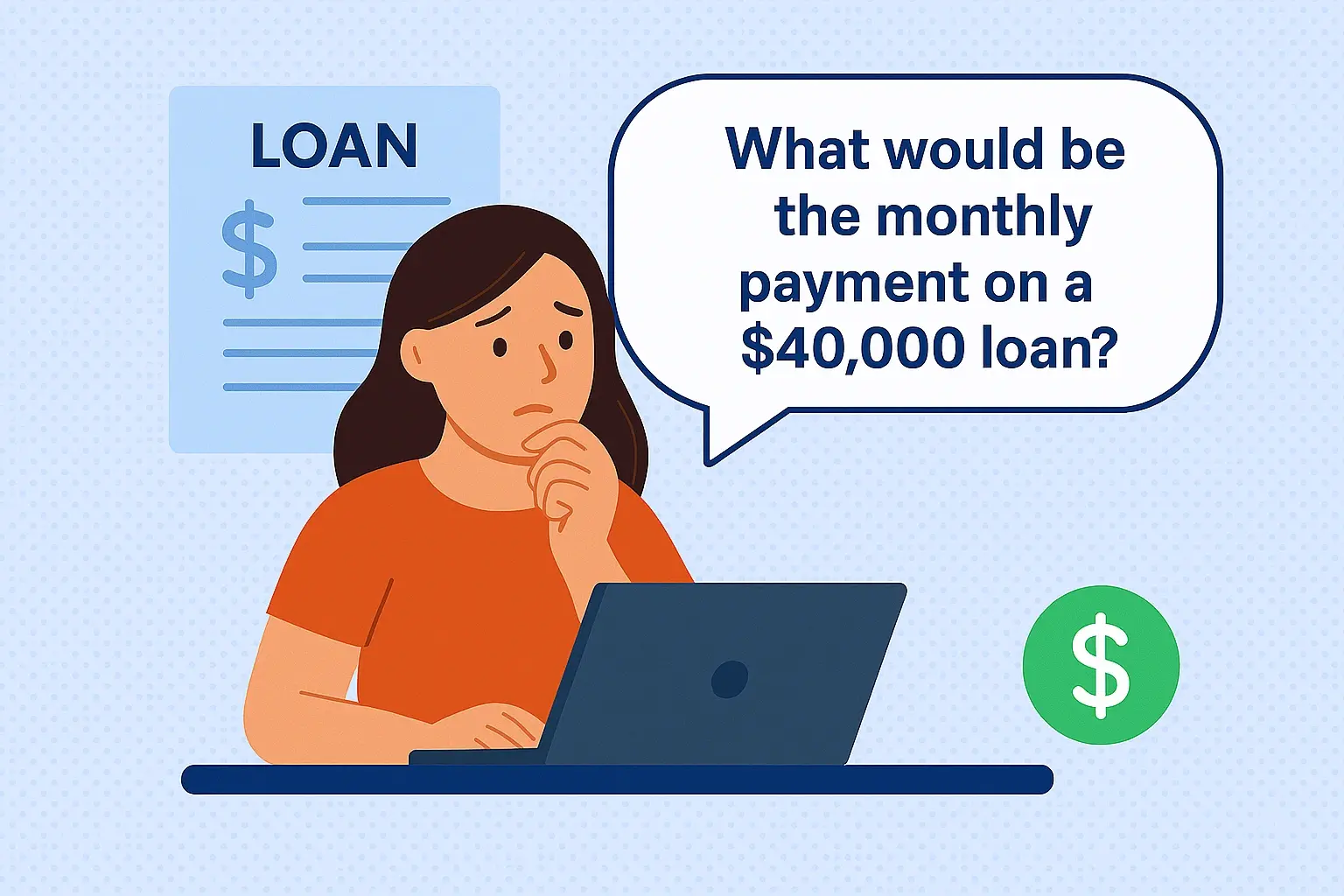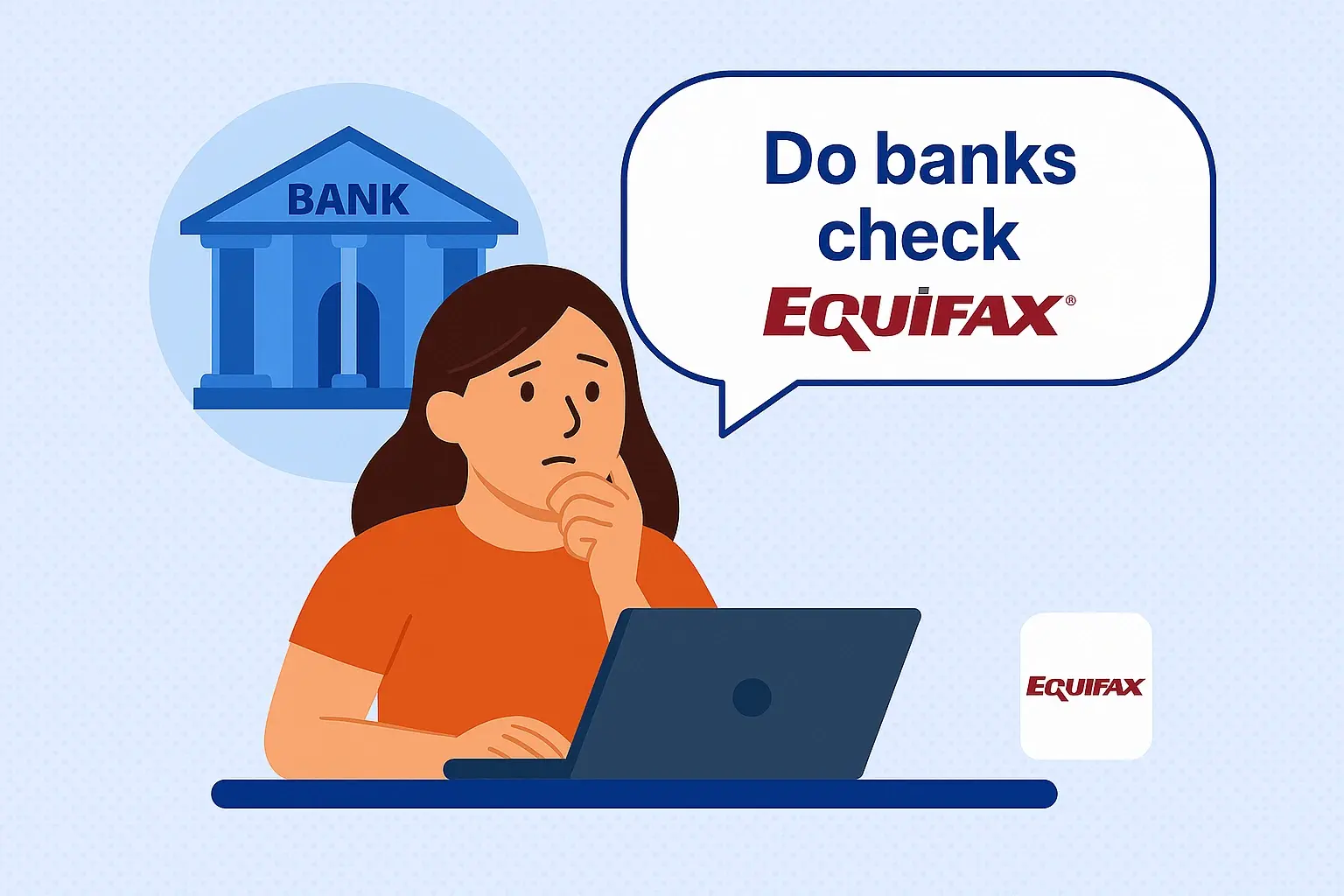-
Posted on: 30 Jul 2024

-
Yes, banks absolutely look at Equifax, along with other major credit bureaus, when evaluating loan applications. Understanding how Equifax data influences bank decisions is crucial for anyone seeking credit in 2025. This guide will demystify the process.
Understanding Credit Bureaus and Their Role
In the financial landscape of 2025, credit bureaus are the gatekeepers of your financial reputation. They are private companies that collect and maintain detailed records of your credit history. These records are then used to generate credit reports, which are a snapshot of your borrowing and repayment behavior. The three major credit bureaus in the United States are Equifax, Experian, and TransUnion. Each of these bureaus compiles its own credit report for consumers, and while they aim to be comprehensive and accurate, slight variations can exist between them. Banks, lenders, and other financial institutions rely heavily on these reports to assess the risk associated with lending money to an individual or business. A strong credit history, reflected in these reports, often translates to easier access to credit and more favorable terms.
The information gathered by credit bureaus includes details about your loans, credit cards, mortgages, and any other form of credit you've utilized. It also tracks how consistently you've made payments, the total amount you owe, and how much of your available credit you're using. Beyond just debt, credit bureaus also record information about any bankruptcies, foreclosures, or collection accounts. This comprehensive data paints a picture of your financial responsibility and reliability. For consumers, understanding how this information is collected, what it means, and how it impacts their financial opportunities is paramount. It's not just about getting a loan; it's about building a foundation for long-term financial health and achieving significant life goals, such as homeownership or starting a business.
Equifax in the Banking Ecosystem
Equifax is one of the three dominant players in the credit reporting industry, and its role within the banking ecosystem is significant and multifaceted. When a bank considers a loan application, whether it's for a mortgage, an auto loan, a personal loan, or a credit card, it's almost guaranteed that Equifax's data will be part of the evaluation process. Banks subscribe to services provided by Equifax, allowing them to access consumer credit reports and credit scores. This access is not arbitrary; it's governed by strict regulations, primarily the Fair Credit Reporting Act (FCRA) in the United States, which ensures that credit information is used for legitimate purposes and that consumers have rights regarding their data. In 2025, Equifax continues to be a primary source of this vital financial intelligence for lenders.
The information provided by Equifax helps banks make informed decisions by offering a standardized way to assess risk. Instead of relying solely on an applicant's word or traditional banking relationships, lenders can leverage Equifax data to gain an objective view of a borrower's creditworthiness. This is crucial for managing risk and ensuring the stability of the banking system. For instance, when a bank underwrites a mortgage, the Equifax report will detail the applicant's history with other debts, providing insights into their ability to handle a large, long-term financial commitment. Similarly, for a credit card application, Equifax data helps determine the appropriate credit limit and interest rate to offer. The sheer volume of data Equifax processes and the sophisticated algorithms used to analyze it make it an indispensable tool for modern banking operations.
Furthermore, Equifax also provides banks with fraud detection services and identity verification tools. In an era where cyber threats and identity theft are ever-present concerns, these services are critical for protecting both the financial institutions and their customers. By cross-referencing information and analyzing patterns, Equifax helps banks identify potentially fraudulent applications, thereby safeguarding their assets and maintaining customer trust. This comprehensive suite of services solidifies Equifax's position as a cornerstone of the banking industry's risk management framework in 2025 and beyond.
How Banks Use Equifax Data
Banks utilize Equifax data in a dual-pronged approach, focusing on both the quantitative assessment provided by credit scores and the qualitative details found within credit reports. This comprehensive view allows them to build a robust profile of an applicant's financial behavior and predict their likelihood of repaying borrowed funds. The integration of Equifax data into a bank's underwriting process is a standard practice, designed to streamline decision-making and mitigate lending risks.
Credit Scores
The most prominent piece of data banks pull from Equifax is your credit score. A credit score is a three-digit number that summarizes your credit risk at a specific point in time. Equifax, like other bureaus, calculates scores using proprietary scoring models, with the FICO score and VantageScore being the most common. These scores are derived from the information contained in your credit report. For 2025, a typical FICO score range is from 300 to 850. Higher scores indicate lower risk to lenders, while lower scores suggest higher risk. Banks use these scores as a quick and efficient way to categorize applicants. A score above 700 is generally considered good, while scores above 740 are often considered excellent, typically qualifying for the best interest rates and loan terms. Conversely, scores below 600 might lead to denials or significantly higher costs.
The specific score a bank looks at can vary. They might use a FICO score, a VantageScore, or even a custom score developed internally based on their own risk tolerance and specific product offerings. For example, a mortgage lender might place more emphasis on certain factors within your credit report than a credit card issuer. However, the underlying data from Equifax remains the foundation for all these scores. The score acts as a primary filter, allowing banks to quickly identify applicants who are likely to meet their lending criteria. It's a critical first step in the loan application process, often determining whether an application proceeds to a more detailed review.
Credit Reports
While credit scores offer a numerical summary, the credit report provides the granular details that support that score. Banks will often pull a full Equifax credit report to understand the 'why' behind the score. This report is a detailed history of your credit activity, including:
- Personal Information: Name, address, Social Security number, date of birth, and employment history. Banks use this to verify your identity and ensure the report belongs to the correct individual.
- Credit Accounts: A list of all your current and past credit accounts, such as credit cards, loans (mortgage, auto, student), and lines of credit. For each account, the report shows the lender, account number (often partially masked), date opened, credit limit or loan amount, current balance, and payment history.
- Payment History: This is arguably the most crucial section. It details whether you've paid your bills on time, if there have been any late payments (and how late), defaults, bankruptcies, foreclosures, or collections.
- Inquiries: A record of who has accessed your credit report. Hard inquiries, which occur when you apply for credit, can slightly lower your score. Soft inquiries, such as checking your own credit or pre-qualification offers, do not affect your score.
- Public Records: Information from public sources, such as bankruptcies, judgments, and tax liens.
By examining the credit report, banks can identify patterns of behavior, understand the types of credit you manage, and assess the overall risk profile. For instance, a report showing consistent on-time payments across various credit types indicates a responsible borrower. Conversely, a report with multiple late payments, high credit utilization, or recent defaults signals higher risk.
Key Decision-Making Criteria
Banks use Equifax data to assess several key criteria that are fundamental to their lending decisions. These criteria help them determine not only if they will approve a loan but also the terms of that loan, such as the interest rate, loan amount, and repayment period. The primary goal is to minimize the risk of default. Here's a breakdown of what they prioritize:
- Risk Assessment: The overarching goal is to gauge the probability that you will repay the loan as agreed. Equifax data provides objective metrics for this assessment.
- Affordability: While not directly on the credit report, the information about your existing debt load (from Equifax) helps banks estimate your debt-to-income ratio (DTI), a critical factor in determining if you can afford new monthly payments.
- Stability: A consistent employment history and a stable address, often found in the personal information section of the Equifax report, can indicate a borrower's reliability.
- Lending Policies: Each bank has its own internal lending policies and risk appetites. Equifax data is used to ensure that an applicant meets these specific requirements. For example, one bank might require a minimum credit score of 680 for a personal loan, while another might accept 640 but with a higher interest rate.
- Regulatory Compliance: Banks must adhere to various regulations. Using Equifax data helps them demonstrate due diligence in their lending practices and comply with fair lending laws.
In essence, banks view your Equifax report and score as a crucial indicator of your financial discipline and trustworthiness. It's a standardized tool that allows them to make consistent and defensible lending decisions across a broad range of applicants.
What Banks Look For in an Equifax Report
When a bank reviews your Equifax credit report, they are looking for specific indicators that demonstrate your creditworthiness and your ability to manage debt responsibly. These indicators are weighted differently depending on the type of loan and the bank's specific lending criteria, but a consistent pattern of positive behavior across these areas is generally what lenders seek. In 2025, the emphasis on these core components remains strong.
Payment History
This is the single most important factor influencing your credit score and, consequently, a bank's decision. Your payment history accounts for roughly 35% of your FICO score. Banks meticulously examine this section of your Equifax report to see if you have a track record of paying your bills on time. Even a single late payment can have a negative impact, especially if it's more than 30 days past due. Multiple late payments, defaults, collections, bankruptcies, or foreclosures are significant red flags that can lead to loan denial or substantially higher interest rates. A history of consistent, on-time payments across all your credit accounts is the strongest signal of a reliable borrower.
For example, if your Equifax report shows that you've paid your mortgage, car loan, and credit cards on time for the last five years, this demonstrates a high level of financial responsibility. Conversely, if there are several 60-day or 90-day late payments, a bank will view you as a higher risk. This section is so critical that even if other aspects of your credit report are strong, a poor payment history can be a deal-breaker for many lenders.
Credit Utilization
Credit utilization refers to the amount of credit you are currently using compared to your total available credit. It's a key factor, typically accounting for about 30% of your FICO score. Banks look at your credit utilization ratio (CUR) for each individual credit card and your overall CUR. A high CUR indicates that you might be overextended or relying heavily on credit, which lenders perceive as a risk. Generally, it's recommended to keep your CUR below 30% for each card and overall. For instance, if you have a credit card with a $10,000 limit and a balance of $5,000, your utilization is 50%. If you have a balance of $1,000, your utilization is 10%, which is much more favorable.
Banks analyze this because it suggests your ability to manage available credit. If you consistently carry high balances, it implies you may struggle to make payments on new debt. Reducing your credit card balances before applying for a loan is a common strategy to improve this metric. Some lenders might also look at revolving balances, which are the balances on credit cards and other revolving lines of credit, as a primary indicator of your ongoing credit usage.
Length of Credit History
The length of time you've been using credit is another important factor, typically accounting for about 15% of your FICO score. Banks prefer to see a longer credit history because it provides more data points to assess your long-term financial behavior. A longer history with responsible credit management demonstrates a proven ability to handle credit over time. This includes the age of your oldest account, the age of your newest account, and the average age of all your accounts. For example, having credit accounts open for 10-15 years or more with good standing is viewed positively. Conversely, a very short credit history might make it harder for banks to assess your risk, especially if you are applying for significant loans like a mortgage.
While you can't artificially age your credit history, maintaining older accounts in good standing, even if you don't use them frequently, can help improve the average age of your accounts. Closing old accounts, especially those with a good payment history, can shorten your average credit history length and potentially impact your score negatively.
Credit Mix
Credit mix refers to the variety of credit accounts you have. This factor typically accounts for about 10% of your FICO score. Banks like to see that you can successfully manage different types of credit, such as revolving credit (credit cards) and installment loans (mortgages, auto loans, personal loans). Having a mix demonstrates that you can handle different repayment structures and credit obligations. For instance, someone who has successfully managed a mortgage, a car loan, and a couple of credit cards might be viewed more favorably than someone who only has credit cards. However, it's important to note that opening new accounts solely to improve your credit mix is generally not advisable, as the negative impact of new inquiries and newer accounts can outweigh the benefits.
The key here is responsible management. Having a diverse credit portfolio is beneficial, but only if you are managing all those accounts responsibly. A mix of credit types is less important than a strong payment history and low credit utilization.
New Credit
The "new credit" factor, also accounting for about 10% of your FICO score, looks at how frequently you open new credit accounts and how many recent inquiries you have. Opening multiple new credit accounts in a short period can be seen as a sign of financial distress or increased risk, as it might indicate that you are struggling to obtain credit elsewhere or are taking on excessive debt. Banks will review the number of hard inquiries on your Equifax report. Each time you apply for credit, it typically results in a hard inquiry, which can slightly lower your credit score for a short period. While a few inquiries spread out over time are normal, a cluster of recent inquiries can be a concern.
For example, applying for three new credit cards and a personal loan within a few months might signal to a bank that you are in a precarious financial situation. Lenders often look at the number of accounts opened in the last 6, 12, and 24 months. It's generally advisable to space out credit applications and only apply for credit when you genuinely need it.
Public Records and Collections
This category includes negative information that can significantly impact your credit score and a bank's decision. Public records, such as bankruptcies, judgments, and tax liens, are serious indicators of financial distress. Collections accounts, which appear when a debt has been sold to a collection agency, also signal that you have failed to pay a debt as agreed. These items can remain on your Equifax report for up to seven to ten years, depending on the type of record and applicable laws. For example, a bankruptcy filing is a major red flag for lenders and can make it very difficult to obtain credit for several years.
Banks pay close attention to these entries. A bankruptcy, especially Chapter 7, indicates a severe financial problem. Judgments and tax liens suggest legal action has been taken against you for unpaid debts. Collections show that you've defaulted on at least one obligation. The presence of any of these can lead to an automatic denial for many types of loans. Even after they are removed from your report, their impact can linger in a lender's memory and influence their risk assessment.
Different Types of Loans and Equifax
The way banks use your Equifax data can vary significantly depending on the type of loan you are applying for. Larger, more complex loans typically involve a more rigorous review of your Equifax report, while smaller, unsecured loans might rely more heavily on your credit score. Understanding these nuances can help you prepare your application and manage your expectations in 2025.
Mortgages
When applying for a mortgage, your Equifax report is scrutinized with extreme detail. Lenders are looking for a strong, long-term credit history that indicates you can handle a significant financial commitment for many years. Key factors include:
- Credit Score: Typically, a score of 620 or higher is needed for most conventional loans, but higher scores (700+) are required for the best interest rates and loan products. Jumbo loans or those with low down payments may require even higher scores.
- Payment History: A spotless payment history is essential. Even a single 30-day late payment within the last 12 months can be problematic. Bankruptcies and foreclosures generally require a waiting period (e.g., 2-7 years) before mortgage approval.
- Credit Utilization: Lenders want to see low credit utilization, ideally below 30%, to ensure you have capacity for a mortgage payment.
- Debt-to-Income Ratio (DTI): While not directly on the Equifax report, your existing debts (listed on the report) are used to calculate your DTI, which is a critical factor for mortgage affordability.
Mortgage lenders will often pull all three credit reports (Equifax, Experian, TransUnion) to get the most complete picture and to comply with industry standards.
Auto Loans
Auto loans are secured by the vehicle, which makes them less risky for lenders than unsecured personal loans. However, your Equifax report still plays a crucial role. Banks and credit unions will review your credit score and report to determine your interest rate and loan term.
- Credit Score: A score of 660 or higher generally qualifies for average rates, while scores above 700 often secure the best rates. Subprime borrowers (scores below 620) may face higher interest rates or require a co-signer.
- Payment History: A history of late payments or defaults on previous auto loans can be a significant deterrent.
- Credit Utilization: While less critical than for mortgages, maintaining reasonable credit utilization shows responsible credit management.
The specific requirements can vary between traditional banks, credit unions, and dealership financing companies.
Personal Loans
Personal loans are typically unsecured, meaning they are not backed by collateral. This makes them inherently riskier for lenders, so your Equifax report and credit score are paramount. Banks use this data to assess your creditworthiness and determine if you are likely to repay the loan.
- Credit Score: For unsecured personal loans, a good to excellent credit score (generally 670+) is often required. Lenders might offer loans to those with lower scores, but at significantly higher interest rates.
- Payment History: A history of consistent, on-time payments is vital. Negative marks like defaults or collections can lead to denial.
- Credit Utilization: High credit utilization can signal overextension and may lead to denial or less favorable terms.
Online lenders often have more flexible criteria than traditional banks, but their interest rates can be higher for borrowers with lower credit scores.
Credit Cards
When you apply for a new credit card, your Equifax report is one of the primary documents a bank will review. The information helps them decide whether to approve your application, what credit limit to assign, and what interest rate (APR) to charge.
- Credit Score: Excellent credit (720+) is usually needed for premium rewards cards, while good credit (670+) is sufficient for many general-purpose cards. Secured credit cards or cards for building credit are available for those with lower scores.
- Payment History: A consistent history of on-time payments is crucial.
- Credit Utilization: Banks look at your current utilization to gauge your credit management.
- Length of Credit History: A longer history with responsible use is preferred.
Banks also look at your existing relationship with them. If you have a checking or savings account with a bank and a history of responsible financial behavior with them, it can sometimes improve your chances of approval for their credit card products.
Business Loans
For business loans, banks often look at both the business's credit history (if established) and the personal credit history of the business owner(s). Your Equifax report plays a significant role in the latter.
- Personal Credit Score: For small businesses, especially startups, the owner's personal credit score is a strong indicator of their financial responsibility. A score of 700+ is often preferred for business loans.
- Payment History: A history of managing personal debts responsibly is important.
- Personal Guarantees: Many small business loans require a personal guarantee, meaning the owner is personally liable if the business defaults. This makes the owner's creditworthiness paramount.
- Business Credit Reports: If the business has its own credit history (e.g., through Dun & Bradstreet), banks will review that as well, but the owner's personal Equifax report is often a primary consideration for newer businesses.
The specific requirements will vary greatly depending on the size of the loan, the type of business, and the bank's risk assessment models.
What Happens If Your Equifax Report is Negative?
A negative Equifax report, characterized by late payments, high credit utilization, defaults, collections, or public records, can significantly hinder your ability to access credit and financial products in 2025. Banks view negative marks as indicators of higher risk, and their lending decisions will reflect this assessment. The consequences can range from outright denial to less favorable loan terms.
Loan Denial
The most immediate consequence of a significantly negative Equifax report is loan denial. Banks have internal thresholds for credit scores and specific negative marks that will lead to an automatic rejection. For instance, a recent bankruptcy, a judgment, or multiple delinquencies can be grounds for denial across various loan types. Even if your report isn't severely negative, a low credit score or a pattern of missed payments can result in your application being declined. Banks are risk-averse, and approving a loan to someone with a history of not repaying debts goes against their fundamental business model.
If you are denied a loan due to information in your credit report, the lender is required by law (under the FCRA) to provide you with an "adverse action notice." This notice will explain the reasons for the denial and will include the name of the credit bureau (Equifax, Experian, or TransUnion) that provided the information, along with their contact details. This is a crucial step that allows you to obtain a free copy of your credit report from that bureau and review the information that led to the denial.
Higher Interest Rates
Even if your Equifax report contains some negative marks but isn't so severe as to warrant outright denial, you will likely face higher interest rates. Lenders compensate for increased risk by charging more for the loan. This means that a borrower with a less-than-perfect credit history will pay more in interest over the life of the loan compared to someone with excellent credit. For example, a mortgage with a 6.5% interest rate for a prime borrower might be offered at 8.5% or higher for someone with a lower credit score and a few blemishes on their report. This difference can amount to tens of thousands of dollars over the loan term.
This tiered pricing structure is common across all credit products, from mortgages and auto loans to credit cards. The higher interest rate is essentially a premium for taking on the additional risk associated with lending to someone with a less-than-ideal credit history. It's a way for banks to make lending profitable while still extending credit to a broader range of consumers.
Stricter Terms
Beyond higher interest rates, banks may impose stricter terms and conditions on loans for individuals with negative Equifax reports. These can include:
- Higher Down Payments: For mortgages or auto loans, you might be required to put down a larger percentage of the purchase price.
- Lower Loan Amounts: The maximum amount you can borrow might be reduced.
- Shorter Repayment Periods: Loans might be structured with shorter terms, leading to higher monthly payments.
- Collateral Requirements: For loans that are typically unsecured, a bank might demand collateral to mitigate their risk.
- Co-signer Requirement: You may be asked to find a creditworthy co-signer who will be equally responsible for the debt.
- Reduced Credit Limits: For credit cards, the approved credit limit might be significantly lower than what you requested.
These stricter terms are designed to protect the lender by reducing their exposure to potential losses. They ensure that even if the borrower faces financial difficulties, the lender has more security or a reduced amount at risk.
Improving Your Equifax Report for Banks
Fortunately, a negative Equifax report is not a permanent condition. By taking proactive steps, you can improve your credit standing and present a more favorable financial profile to banks in 2025. The key is to demonstrate responsible financial behavior over time. Here’s a guide to improving your Equifax report:
Regularly Check Your Equifax Report
The first and most crucial step is to know what's on your report. You are entitled to a free copy of your Equifax report (along with Experian and TransUnion) annually from AnnualCreditReport.com. Review it thoroughly for any errors, such as incorrect personal information, accounts that don't belong to you, or inaccurate payment statuses. Errors can significantly drag down your score, and correcting them can lead to an immediate improvement.
Checking your report also helps you understand your current credit standing and identify areas that need improvement. It's a diagnostic tool that empowers you to take targeted action. Make it a habit to check your report at least once a year, and more frequently if you are planning to apply for credit soon.
Pay Bills On Time
As mentioned, payment history is the most significant factor in your credit score. Make it a priority to pay all your bills on time, every time. This includes credit cards, loans, utility bills, and rent if reported to credit bureaus. Set up automatic payments or calendar reminders to ensure you never miss a due date. Even one late payment can have a lasting negative impact, so consistency is key. If you have a history of late payments, focus on establishing a new pattern of timely payments. Over time, positive payment history will begin to outweigh older negative marks.
For existing late payments, ensure they are brought current as soon as possible. If a payment is more than 30 days late, it will be reported to the credit bureaus. The sooner you rectify it, the less damage it will cause.
Reduce Credit Utilization
High credit utilization is a major red flag for lenders. Aim to keep your credit utilization ratio below 30% on each credit card and overall. If you have balances that are high, focus on paying them down aggressively. Prioritize paying down cards with the highest utilization first. Even paying off a portion of the balance can make a difference. For example, if you have a credit card with a $5,000 limit and a $4,000 balance (80% utilization), paying it down to $1,500 (30% utilization) will significantly boost your score.
Consider requesting a credit limit increase on existing cards. If approved, this can lower your utilization ratio, assuming your balance remains the same. However, only do this if you can trust yourself not to spend more. The goal is to manage credit responsibly, not just to lower the ratio temporarily.
Avoid Opening Too Many New Accounts
Applying for multiple credit accounts in a short period can negatively impact your credit score due to multiple hard inquiries and the introduction of new, younger accounts. Only apply for credit when you genuinely need it. If you are planning to apply for a major loan like a mortgage, it's advisable to avoid opening any new credit accounts for several months beforehand. This shows lenders that you are not in desperate need of credit and are managing your existing accounts responsibly.
When you do need to open new accounts, space them out. For example, open one new account and manage it responsibly for six months to a year before considering another application. This demonstrates consistent, responsible credit behavior over time.
Dispute Errors
As mentioned earlier, errors on your Equifax report can lower your score and lead to loan denials. If you find any inaccuracies, such as incorrect personal information, accounts you don't recognize, or incorrect payment statuses, dispute them immediately with Equifax. You can do this online, by mail, or by phone. Equifax is required to investigate your dispute within a reasonable timeframe (usually 30 days) and correct any errors they find.
Keep records of all communication and documentation related to your disputes. A corrected report can lead to a significant and immediate increase in your credit score. This is a critical step for anyone who suspects their credit report may contain inaccuracies.
Consider a Secured Credit Card
If you have a poor credit history or no credit history at all, a secured credit card can be an excellent tool for rebuilding or establishing credit. With a secured card, you provide a cash deposit that serves as collateral, typically equal to your credit limit. Use the card responsibly by making small purchases and paying them off in full and on time each month. Most secured cards report your payment activity to the major credit bureaus, including Equifax. Over time, responsible use of a secured card can help improve your credit score and demonstrate your creditworthiness to lenders.
After a period of responsible use (usually 6-12 months), many issuers will review your account and may refund your deposit, converting the card to an unsecured one. This is a proven method for many individuals to improve their credit standing.
Seek Professional Help
If you are struggling to manage your debt or improve your credit report, consider seeking help from a reputable credit counseling agency. These non-profit organizations can provide advice on budgeting, debt management plans, and strategies for improving your credit. Be wary of companies that promise to "fix" your credit overnight, as these are often scams. Look for agencies accredited by organizations like the National Foundation for Credit Counseling (NFCC) or the Financial Counseling Association of America (FCAA).
A credit counselor can help you understand your financial situation, create a realistic plan, and negotiate with creditors if necessary. Their guidance can be invaluable in navigating the complexities of credit repair and presenting a stronger financial picture to banks.
Equifax vs. Experian vs. TransUnion: A Comparison
While Equifax is a major player, it's important to remember that it's one of three primary credit bureaus. Banks often pull reports from all three, or at least two, to get a comprehensive view of an applicant's creditworthiness. Understanding the similarities and differences between Equifax, Experian, and TransUnion can be beneficial.
Similarities:
- Data Collection: All three bureaus collect similar types of data, including payment history, credit utilization, length of credit history, credit mix, and new credit.
- Credit Scoring Models: They all use credit scoring models (like FICO and VantageScore) to generate credit scores based on the data in their reports.
- Regulation: They are all subject to federal regulations like the Fair Credit Reporting Act (FCRA), which governs how they collect, use, and report credit information.
- Consumer Rights: Consumers have the right to access their credit reports and dispute inaccuracies with all three bureaus.
Differences:
- Data Sources: While they collect similar data, the specific sources they report from can vary. A creditor might report to one bureau but not another, or report at different times. This can lead to slight discrepancies between reports.
- Scoring Models: Although they use common scoring models, the exact algorithms and how they weigh certain factors can differ slightly, leading to variations in credit scores.
- Product Offerings: Each bureau offers a range of products and services to consumers and businesses, which can differ in features and pricing.
- Data Breaches: Each bureau has experienced its own data security incidents, with Equifax's 2017 breach being one of the most significant. This can affect consumer trust and data privacy concerns.
When a bank pulls your credit, they might use a "tri-merge" report, which combines information from all three bureaus, or they might pull individual reports. The specific bureau(s) used can depend on the lender's internal policies, the type of credit product, and sometimes even the geographic region. Therefore, maintaining a good credit profile across all three bureaus is essential for ensuring you present the best possible financial image to any bank or lender in 2025.
The Future of Credit Reporting and Banking
The landscape of credit reporting and banking is continually evolving. In 2025 and beyond, we can expect several trends to shape how Equifax data is used and how consumers interact with financial institutions. One significant trend is the increasing use of alternative data. Beyond traditional credit history, lenders are exploring data from utility payments, rent payments, and even cash flow analysis from bank accounts to assess creditworthiness. This could provide opportunities for individuals with thin credit files to access credit more easily.
Another area of development is the advancement of artificial intelligence and machine learning in credit underwriting. AI algorithms can process vast amounts of data more efficiently and identify complex patterns that human analysts might miss. This could lead to more personalized credit offers and faster decision-making. However, it also raises concerns about algorithmic bias and the need for transparency and fairness in AI-driven lending decisions. Equifax and other bureaus are investing heavily in these technologies to remain competitive and provide more sophisticated analytics to their banking clients.
Furthermore, there's a growing emphasis on consumer control over their data and enhanced data security. Following major data breaches, consumers are more aware of their digital footprint and are demanding greater privacy and control. Regulatory bodies are also pushing for stronger data protection laws. This might lead to new models where consumers have more say in how their data is shared and used by institutions like Equifax and the banks that rely on it. The integration of blockchain technology for secure and transparent data sharing is also being explored, though widespread adoption is still some way off.
Finally, the rise of FinTech companies continues to challenge traditional banking models. These companies often leverage innovative approaches to credit assessment and offer more agile lending solutions. While they still rely on credit bureau data to some extent, their ability to integrate alternative data sources and utilize advanced analytics means that the traditional role of Equifax might expand or adapt to incorporate these new data streams. The core function of assessing credit risk will remain, but the methods and data used are likely to become more diverse and sophisticated.
Conclusion: Your Equifax Report and Financial Future
In conclusion, the answer to "Do banks look at Equifax?" is a resounding yes. Equifax, along with Experian and TransUnion, forms the bedrock of credit assessment for virtually all financial institutions in 2025. Your Equifax credit report and the associated credit score are critical determinants of your ability to access loans, credit cards, and other financial products, as well as the terms you'll receive. Banks meticulously analyze your payment history, credit utilization, the length and mix of your credit, and any recent credit activity to gauge your risk as a borrower.
A strong Equifax report signals financial responsibility and trustworthiness, leading to easier approvals and more favorable terms like lower interest rates. Conversely, a negative report can result in loan denials, higher costs, and stricter lending conditions. The good news is that your credit report is not static. By consistently paying bills on time, managing credit utilization effectively, avoiding excessive new credit applications, and promptly disputing any errors, you can actively improve your Equifax profile. Tools like secured credit cards and professional credit counseling can also be invaluable in this process.
Understanding how Equifax data influences bank decisions is not just about securing a loan today; it's about building a solid foundation for your long-term financial health and achieving your future goals. Take the time to review your Equifax report, understand its contents, and implement strategies to enhance your creditworthiness. Your proactive efforts today will pave the way for greater financial opportunities tomorrow.











